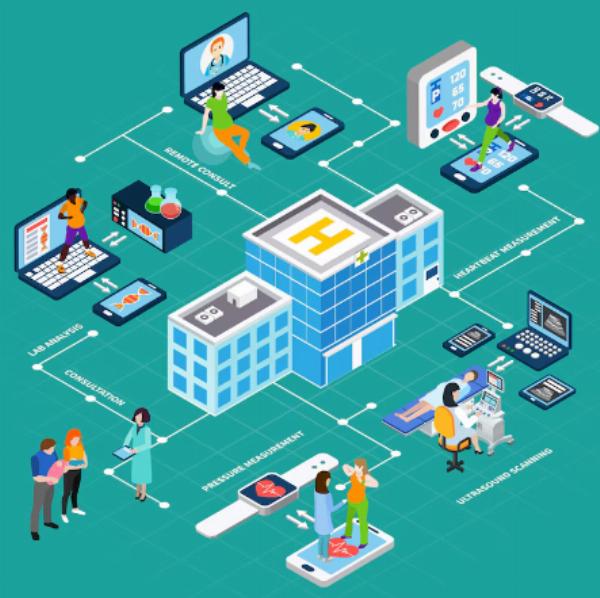 Topic Cluster Planning – Boost Topical Authority Like a Pro!
Topic Cluster Planning – Boost Topical Authority Like a Pro!
Hospital Management System: A Comprehensive Guide
Written by Nazia » Updated on: June 17th, 2025

A Hospital Management System is a vital tool for modern healthcare facilities, improving operational efficiency, patient care, and financial management.
A Hospital Management System (HMS) is an integrated software solution designed to streamline healthcare facility operations. It enhances administrative, financial, and clinical workflows, improving efficiency, accuracy, and patient care. With digital transformation revolutionizing the healthcare industry, hospitals worldwide are adopting HMS to manage their services effectively.
Key Features of a Hospital Management System
1. Patient Registration and Appointment Scheduling
Manages patient records, personal details, and medical history.
Allows easy appointment booking and automated scheduling.
Sends reminders via SMS or email to reduce no-shows.
2. Electronic Health Records (EHR) Management
Stores patient medical records digitally for easy access.
Enables secure data sharing among healthcare professionals.
Reduces paperwork and improves diagnosis accuracy.
3. Billing and Insurance Processing
Automates billing, invoicing, and payment processing.
Integrates with insurance providers for seamless claim management.
Tracks financial transactions and generates detailed reports.
4. Pharmacy Management
Manages drug inventory, prescriptions, and stock levels.
Prevents medication shortages and minimizes waste.
Alerts for expired or low-stock medicines.
5. Laboratory and Diagnostic Management
Facilitates test bookings and result tracking.
Integrates lab reports with patient records.
Enhances communication between departments for quick diagnosis.
6. Staff and Workforce Management
Manages employee schedules, payroll, and performance.
Tracks doctor and nurse availability.
Improves coordination between departments.
7. Inventory and Supply Chain Management
Monitors hospital equipment and medical supplies.
Reduces resource wastage and optimizes procurement.
Ensures seamless supply chain operations.
8. Telemedicine Integration
Facilitates virtual consultations and remote healthcare services.
Enhances patient access to medical professionals.
Securely stores virtual consultation records.
9. Security and Compliance
Ensures compliance with healthcare regulations (HIPAA, GDPR, etc.).
Implements multi-level authentication for data security.
Protects patient information from unauthorized access.
Benefits of a Hospital Management System
1. Improved Efficiency and Workflow Automation
HMS automates routine hospital tasks, reducing manual intervention. This enhances staff productivity and minimizes errors in patient care.
2. Enhanced Patient Experience
Patients benefit from quicker appointment scheduling, reduced waiting times, and digital access to their medical records, improving overall satisfaction.
3. Cost Reduction and Revenue Management
By automating billing, inventory, and administrative processes, hospitals can reduce operational costs while optimizing revenue cycles.
4. Better Decision-Making with Data Analytics
HMS provides insightful reports and analytics, helping hospital administrators make data-driven decisions to enhance service quality and efficiency.
5. Real-Time Access to Medical Information
Doctors and healthcare staff can access patient records instantly, improving diagnosis and treatment efficiency.
Challenges in Implementing a Hospital Management System
Despite its advantages, implementing HMS comes with challenges:
High Initial Investment: Setting up an HMS requires significant financial investment in software, hardware, and training.
Data Migration Issues: Transitioning from paper-based or legacy systems to a digital system can be complex.
Staff Resistance to Change: Hospital staff may initially resist using digital systems due to a lack of technical knowledge.
Cybersecurity Concerns: Protecting patient data from cyber threats is crucial and requires advanced security measures.
Choosing the Right Hospital Management System
When selecting an HMS, hospitals should consider:
Customization: The software should be adaptable to the hospital's specific needs.
User-Friendly Interface: Easy navigation and minimal training requirements are essential.
Integration Capabilities: The system should seamlessly integrate with existing hospital software and third-party services.
Scalability: The HMS should be able to grow with the hospital’s expanding needs.
Regulatory Compliance: The system must adhere to healthcare regulations and data protection laws.
Conclusion
While challenges exist, the benefits of streamlined processes, reduced costs, and enhanced patient experience outweigh the hurdles. As healthcare technology advances, investing in a robust HMS is essential for hospitals aiming to provide high-quality medical services.
Note: IndiBlogHub features both user-submitted and editorial content. We do not verify third-party contributions. Read our Disclaimer and Privacy Policyfor details.
Men's Journal is a rugged and refined lifestyle adventure travel, food and drink Get in touch [email protected] to find out how we can help you reach everyday, affluent, and adventure seeking consumers on Men's Journal
Copyright © 2019-2025 IndiBlogHub.com. All rights reserved. Hosted on DigitalOcean for fast, reliable performance.













